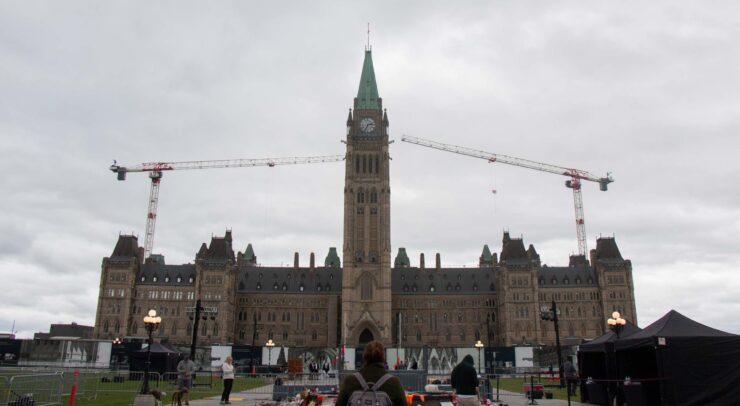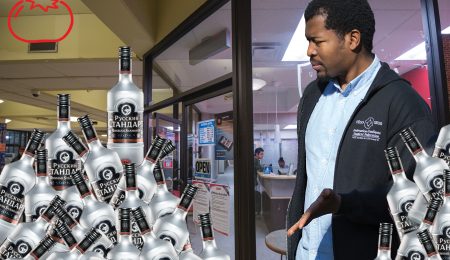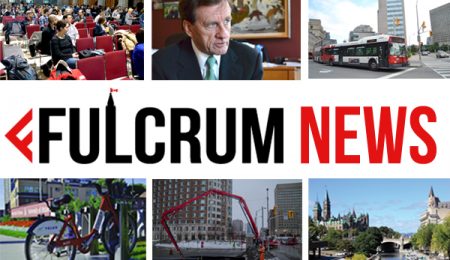“I think the frustrating thing that I’ve noticed is that progress is always painfully slow,” said doctoral student Caitlin Hart
In 1921, the first year women were granted the right to vote in Canada, Agnes MacPhail became the first female member of parliament (MP) in the country. In 1943, she and Rae Luckock became the first women elected to the Legislative Assembly in Ontario.
In 2021, following the federal election, only 30 per cent of elected MPs to Parliament were women.
That’s not enough.
#FeministTrudeau, the status quo, and post-election woes
Stacie Trinh, the VP academic for public administration in the International, Political, and Policy Students Association (AEEIPPSSA), has mixed feelings about the election results — like most Canadians — she believes the elected MPs don’t represent the country’s true diversity.
“There are so many different cultural [and] structural barriers to allow BIPOC people to go into parliament,” said Trinh in an interview with the Fulcrum. “[All while] understanding the different stereotypes and biases that come along with being vulnerable and putting yourself out there for elections.”
Prime Minister Justin Trudeau was the first prime minister in history to establish a gender-balanced cabinet after making the task a key objective of his 2015 platform. Although MPs are elected officials based on electoral ridings, men still dominate the field of politics.
Caitlin Hart, a U of O doctoral student in feminist and gender studies, finds the female representation in this past election “just okay.”
“In most jurisdictions outside of major city centres, even across like party leaders, you’re still having people who are from similar backgrounds and those are still the politicians who often do the best and are able to make the most inroads,” she said.
“I think the frustrating thing that I’ve noticed is that progress is always painfully slow.”
Pascale Dangoisse, a part-time professor in communications and a PhD candidate, found the lack of discussion during the election regarding feminism disappointing.
“Although a good thing is that climate change and the environment is pretty big on the agenda, even the conservative agenda, climate change affects predominantly women, and predominantly women with poor backgrounds or from third-world countries,” she said in an interview.
“If we can get the environments on our agendas, as you know a priority, then I think it’ll help gender inequality as well.”
Prime Minister Trudeau also didn’t formally commit to a quota on Black, Indigenous and People of Colour (BIPOC) representation in his cabinet as he did for women in 2015. This further disregards the intersectionality of women or queer people of colour who face different barriers when entering political fields.
“I think [Trudeau’s cabinet parity] is a starting point, but there needs to be more because BIPOC representation is crucial point-blank,” Hart said. “I think a lot of issues can go under the radar or get brushed over. For example, anything to do with pipelines or reconciliation. Otherwise, it’s just lip service if you have a bunch of white people in cabinet.”
“It doesn’t really put your money where your mouth is in terms of Indigenous sovereignty or Black Lives Matter. (…) Sure it’s all well and good, but if you don’t have the representation, those perspectives, and that expertise, what are we really doing here?”
Barriers and hate barrages
Hart explained that entering the field of politics has significant barriers to them. Many politicians possess post-secondary degrees — often at the Master’s level — and have the financial resources to support their campaigns.
“Frankly [the] cost of living and access to funding, for example, for a university degree, is just not available to everybody,” she said.
There are also different degrees of harassment and discrimination that women in politics often face, but are significantly overlooked. For example, Dangoisse says there has been little mention of former minister of infrastructure, Catherine McKenna, during the election, and the amount of harassment and attacks she has faced over her six-year term as MP.
“I think that is one of the barriers to women entering the political sphere: having to deal with that kind of harassment. And if we want more women there, then we need to tackle some of those big problems,” she continued.
Dangoisse also cites Celina Caesar-Chavannes as another former MP who had been scarcely mentioned during the election.
Caesar-Chavannes wrote in a September CTV article detailing her experience and decision. “As time went on, I noticed that it did not apply to me, Jody Wilson-Raybould, Dr. Jane Philpott, Eva Nassif or Leona Alleslev. Because it is 2015 only applied when it was convenient, but got tossed to the side when women challenge the status quo and dare I say, stand up for themselves.”
Party discipline and conformity is a significant issue for women in politics, Dangoisse mentioned, as well as not aligning with the status quo of their respective parties results in punishment.
“(…) We saw that with the ousting of Jody Wilson-Raybould. If you want to challenge the biases, if you want to challenge the status quo, if you want to challenge those traditional roles, then you have no choice but to push and go against some of those party lines. So, a little more flexibility could help go a long way,” she said.
Trinh believes the perception of women plays a significant role in their success.
“In recent elections, the determining factor has really been changed from ‘who is the most qualified to take this position? Who’s most qualified to represent me?’ to ‘Who do I disagree with the least? What party do I find that most align myself with?’ So there’s a perception and judgment element that women have to overcome,” she said.
Esther Goombs, the vice president of equity for AEEIPPSSA, added that the imposter syndrome in women prevents them from applying for certain political roles, despite possessing the right qualifications.
“Since there’s less representation of women in the government and [in] those conditions, you may feel that you may not be as equipped to handle situations when you may even have more credentials than the man beside you.”
The future is looking female
There is a significant ‘chicken-egg’ approach when it comes to advocating for greater female representation in politics: many won’t participate unless they see others with similar backgrounds there first. But it can also be very uncomfortable to be the only one of your kind in a male-dominated workplace.
One way to resolve this is by hiring and encouraging more diverse faculty in order to allow them to teach different perspectives and concepts through different political courses.
“I think that our teachers, especially at university, are authority figures and knowledge holders, and it’s the same with politicians. They know a lot more about the different situations than we will ever know, and so if you see an increasing number of people in these authority, roles, and you can see yourself in them,” said Dangoisse.
“There’s a disparity in creating opportunities for women to have those experiences, comfortable experiences where they can be sure of themselves and build the skills set they need,” said Goombs. “Perhaps mentorship programs to help women in university, or even in high school, who want to take those opportunities and further gain the experience and the connections they need.”
Running and participating in registered student governments and on-campus elections allows great experience for young women to gain new experience in leadership positions and represent voices for a population.
“In my personal experience, working with my own student association and other people, a really great way to get students to be engaged is to find some way to make the topic or personal to the person,” said Trinh.
Dangoisse says encouraging women who are active in your communities is another great step to allow them to step into politics.
“A lot of people don’t know but at [the] municipal level, you start off small. You start by being elected on the school board and you start from there and you see women are on a lot of school boards, [but] they don’t take that extra step to go to municipal politics,” she said.
“I do believe that our society is making a change in our viewpoints towards representation and its importance and the need to have marginalized groups within governments,” said Goombs. “Once you become educated, the next important thing is for steps of systemic change within government and that I hope to see that.”




